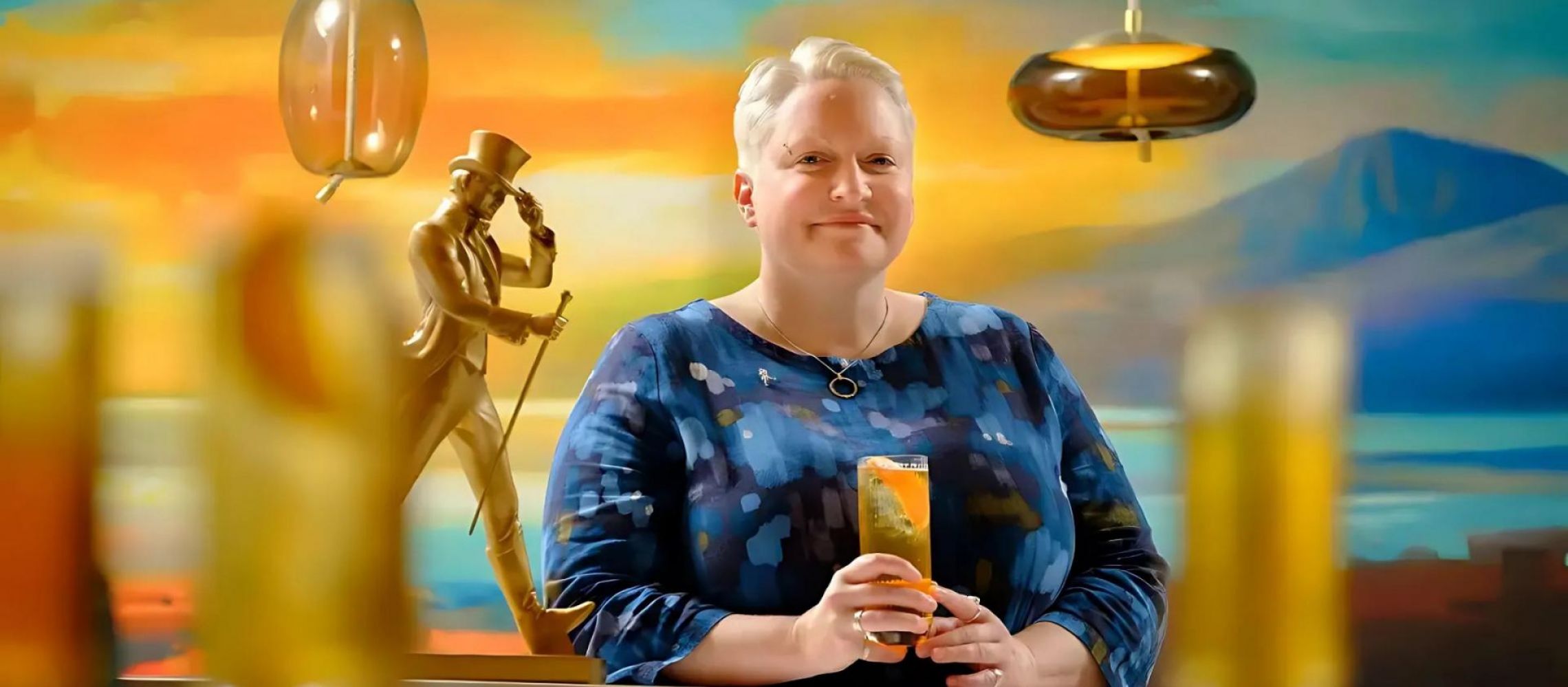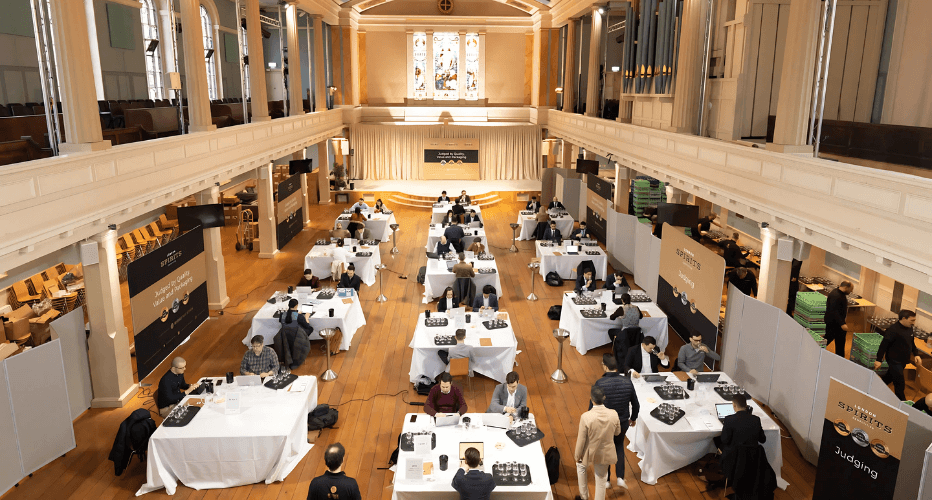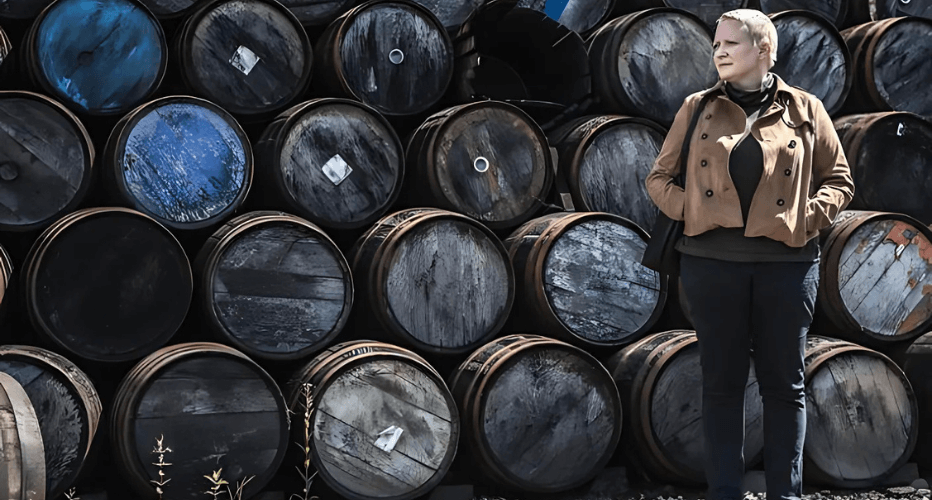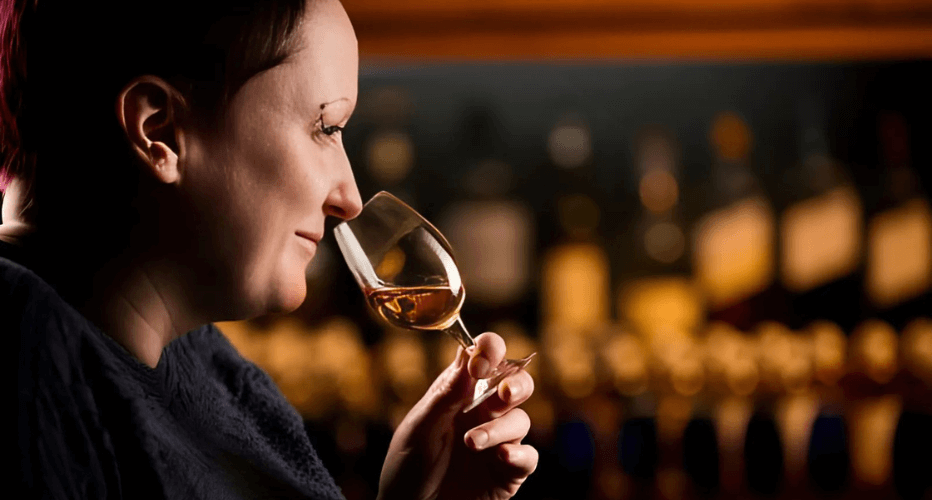Submission Deadline
28 February 2026
Judging
Date
24 & 25 March 2026
Winners Announcement
22 April 2026
28 February 2026
24 & 25 March 2026
22 April 2026

Whisky blending is a delicate balance of science and artistry—an intricate dance of flavour, aroma, and texture that must appeal to both seasoned connoisseurs and curious newcomers. Emma Walker, Master Blender at Diageo, whose expertise shapes some of the most renowned whiskies in the world has perfected this art. With a background in chemistry and years spent mastering the nuances of whisky maturation, Emma has a deep appreciation for distillery character and balance.
As a judge at the London Spirits Competition, she brings a consumer-focused perspective to whisky evaluation, emphasizing approachability alongside technical excellence. In this conversation, she delves into what makes a whisky truly great, how innovation should complement rather than overshadow tradition, and the evolving trends shaping the future of whisky.
A truly great whisky is one that you really enjoy and would want to try again – it leaves you wanting more!
To achieve this, it needs to be of very high quality to nose or taste, and have great balance and harmony, with all aspects of the whisky coming together to create something truly wonderful.
For me, the whisky needs to show great distillery character, showcasing the unique character of the whiskies used, talking to the people and place that made it; balanced with excellent maturation from the casks used, that accentuates without over-whelming the distillery flavours. All of this comes together to create amazing aroma, flavour, and texture with the finish you want.

Image: The London Spirits Competition
Each whisky needs to be assessed on what it delivers to you and whether you’re enjoying it, and I think it’s important for us judges to remember that consumers can be looking for different styles of whiskies at different points in time or occasions. A simple whisky can be well made and very balanced, and have great flavours, aromas, textures, and finish, just as a complex whisky can be - each whisky needs to be evaluated in the moment based on its own merits.
When we’re creating a new whisky, we’re using technical quality and knowledge to create approachability and consumer appeal.
We’re immediately thinking about who’s going to be drinking the whisky, how they’re going to be drinking it and is the whisky going to be connected with a specific event or occasion (for example, Johnnie Walker Blue Label Ice Chalet and the Apres Ski moment!). This will help us to think about what flavours and textures we want in the whisky, and which distilleries and cask styles we’re drawn to, to create this.
So when we’re judging a whisky, we should be able to discern the desired flavours the blender has built and understand the approachability and technical skill.

Image: Johnnie Walker Blue Label Ice Chalet; Source: Johnnie Walker.
I think it’s difficult to call out specific aromas as we all have different experiences and memories. More importantly, I think a whisky aroma that takes you on a journey is a sign of exceptional craftmanship – with a beautiful vibrant start, then revealing more layers and complexity, less predominant aromas building and intriguing, before delivering a balanced measured finish.
My favourite way of thinking about ‘terroir’ is thinking about our individual distilleries that have been created by the people who work there and the decisions they have made over decades and the places they’re built in – all of this together creates the unique character of a single distillery, and they deliver the high quality we need from our whiskies.

Image: Master Blender at Johnnie Walker, Dr Emma Walker.
I love that whisky blending, for blended and single malt Scotch whisky, is a balance of science and art and that when we’re creating a new whisky, it’s all about flavour!
We’re building on the knowledge and understanding that’s been developed through the creation and management of our blends that consumers know and love, while understanding more about how to attract new consumers through flavour, experience, and serves & events.
Through balance and nuance and understanding of the science of maturation. At every stage of creating a whisky, balancing distillery character and wood influence is one of the key asks – we need to make sure we don’t lose the craftmanship from our distilleries and the unique characteristics each distillery can deliver.
It’s always great when we get to talk to bartenders and other spirit professionals, and we learn about how the trade and our consumers think about whiskies and our products. One of the things that always strikes me is how we think about flavour in a similar way – as a blender, I think about ‘building’ a whisky in the same way bar tenders think about creating a new serve, so I would always recommend they think about all the elements whiskies can deliver from flavour to texture and finish, and whether they want to contrast the whisky flavours or complement these in the final serve.

Image Source: Diageo Bar Academy.
I think consumers around the world will continue to think strongly about wellbeing so the moderation trend will continue, with people looking at imbibing less, spacing with non-alcoholic drinks, and demanding high quality, special products and serves to be enjoyed. Connecting to this, I believe consumers are continuing to look for new and different experiences from the brands they enjoy, with expectations of improved sustainability and experimentation while working with local influences and ingredients.
[[relatedPurchasesItems-63]]
As the whisky world evolves, Emma Walker remains steadfast in her approach—honouring the craftsmanship of distilleries while embracing innovation with precision and intent. Her insights reveal a deep respect for whisky’s heritage while acknowledging the shifting preferences of today’s drinkers, from the growing demand for premium expressions to the rise of mindful consumption.
Whether she’s developing a new blend, judging a whisky’s character, or engaging with bartenders and spirits professionals, Walker’s philosophy is clear: whisky should be an experience, one that resonates on both a technical and emotional level. And as the industry continues to expand its horizons, her thoughtful approach ensures that every sip tells a story worth savouring.
Header Image: Emma Walker; Source - Diageo.
In conversation with Malvika Patel, Editor and VP, Beverage Trade Network
Also Read:
Emma Walker, First Female Master Blender of Johnnie Walker Joins London Spirits Competition as Judge
Leading Tomorrow: Insights from Diageo’s Chief Innovation Officer
Exploring Diageo's Distinctive World of Global Travel Retail
Show your spirits where it matters. Get your products tasted by top bartenders, buyers and experts at the London Competitions — enter now.